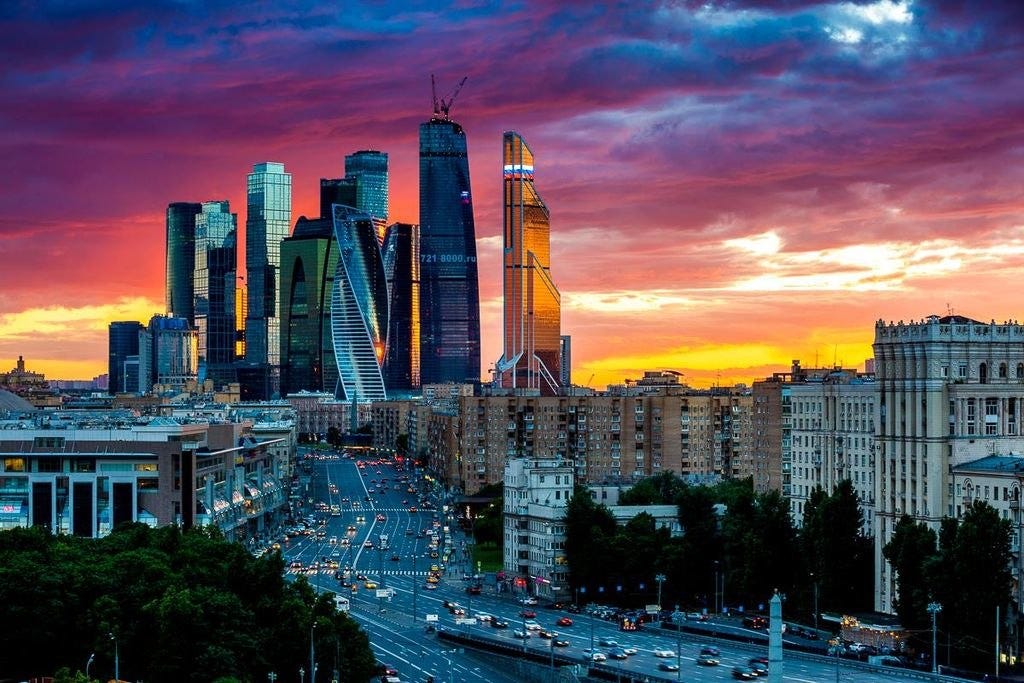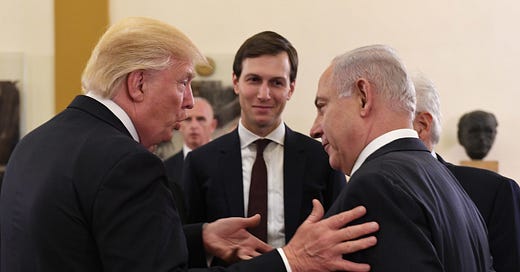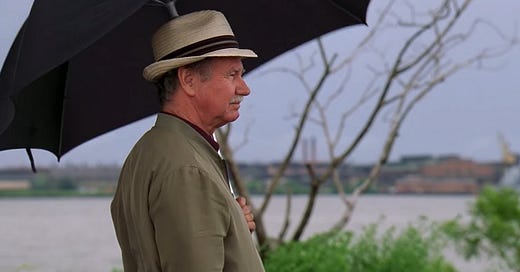
MOSCOW NEVER SLEEPS
I know how to get around in this town
I know everything that just slows me down
Step by step under power
‘Round the Ring in rush hour
Not everyone wins in this race
If you aren’t first, there’s no second place
Everyone’s pushy and rude
If you’re late you’re just screwed
—“Moscow,” (DJ Smash feat. Vintage, 2012)
Russia’s only two woes are its fools and its roads.
—Russian aphorism, (Author and date unknown)
Guest Post by Moscow Never Sleeps
POST-SOVIET MOSCOW has suburbs with tended lawns, communal tennis courts, and bike paths. If you are so inclined there are even golf courses, built in late perestroika because Armand Hammer told Mikhail Gorbachev capitalists would never invest in Russia without somewhere to indulge their favorite bourgeois fetish. Around the year 2000, as our two boys grew too rambunctious for a downtown apartment, my wife and I moved us out to a cottage in some Connecticutstan just beyond the far northwestern edge of the city. Aside from a monthly rent that would shame a Manhattan landlord, I also got a three to four hour a day round trip commute because the Metro did not come anywhere near my house.
Moscow traffic wasn’t always terrible. Back in 1984, on my first trip, her wide crosstown eight-lane avenues, built to accommodate May Day convoys of T-34s, mobile Topol-class ICBM launch vehicles, and Black Marias, were nearly pristine except at rush hour. But the city back then only had a million or so vehicles for about eight million people. Traffic was light enough that the public transportation system could still run tramways down main thoroughfares in parallel to the trolley system on dedicated rails. By the 21st century, the population in and around the city was closer to twenty million and the number of cars, buses, and trucks was nearly half that. Even with one of the most efficient and busiest mass transit systems on Earth (including a world-class subway system that can carry ten million passengers a day and almost never allows more than 90 seconds between trains), Moscow’s streets were jammed almost around the clock with what they call probki—literally, “corks.”
My kids went to school downtown, near where I worked, first in a classically post-revolutionary detsky sad—numbered 1917 by coincidence—in the Aeroport region behind a Tsarist-era military academy and then in a public Russian school down on the Garden Ring near the Zoo and the US Embassy.
We came to Russia when the kids were in day care. By the time they were ready for legally-mandated formal instruction, I still did not have the kind of pay package that would allow for the Embassy school. There was no reason to shell out tens of thousands of dollars per kid per year so that they could play with blocks and crayons in English. So my wife and I, with some help from our driver, promised a few hundred bucks a month in cash donations to the institution’s zavuch, and bingo, the boys were enrolled into the beginning stages of what would be a decade of Russian language education. We told the principal to separate the two of them into each of the tiny school’s two sections so that they couldn’t hide in a corner and speak English to one another. For three months our little red-headed Yankee brats would cry in frustration at their linguistic isolation from the other kids, until one day they came home smiling and told me, in perfect Russian, that (a) the class had a new pet turtle named Pashka, and (b) I could go eat a bowl of horseradish.
By the time they were ready for first grade, the boys could read and write in the target language at the same level as their native peers. For the same few hundred a month they were enrolled at an elite English-language public school where the only class actually taught in English was English. (I had to go to the zavuch to complain that my boys got a grade of 4 on a scale of 5 in their native language for no other reason than the fact that as Americans they refused to say “aluminium” or write “colour.”) Because Russian law mandates certification in swimming by the first grade, the school had an Olympic-size pool below a surprisingly well-equipped theatrical stage with seating for nearly a thousand people. There were no doors on the toilet stalls to make it harder for Vovochka or Nastenka to smoke or prostitute themselves on school grounds. For the first several years I got hard stares from the other mothers for carrying a thermos mug with me onto campus until I put a sticker on it that said “COFFEE—NOT VODKA.” It was a great school and my boys two decades later still keep in touch with their classmates.
But it started spot at 8:30 am, and that meant we had to leave around a quarter to seven in the morning, so that we could share Moscow’s main northwest artery with a quarter million of our closest personal friends. The only good mornings for the commute were when the temperature was at least two digits below zero, so cold that C or F is a distinction without a difference.
Almost all the other mornings in either of Russia’s two seasons (winter and road repair) were miserable: wet, nasty, overcast, stinking of ten million exhaust pipes on the roads belching out low-octane exhaust. The minute we stepped out of the house on those mornings, the cursing started—me, my kids, the driver—because we knew that we had two hours of traffic ahead of us through slush, downpours, or just the oppressive everyday malaise, and we might as well get a head start on the one form of self-care that Russian culture excels at: telling everyone and everything in the world to go fuck their mothers.
But if I got out to the car to subarctic temperatures and the stars twinkling in nautical twilight, I knew that the day would be polar cold, but the skies would be clear. If you haven’t experienced the sheer joy of eyelash-snapping cold weather under a cloudless sunny sky, you haven’t lived. The kids and the driver and your humble narrator still told everyone to go fuck their mothers, but we did so from a place of love.
The driver’s name was Kostya, and he looked like the original comic book version of Wolverine—short, solid, sharp-witted. His wife Irina had been the boys’ babysitter when they were too young for detsky sad, and soon Kostya was on the household budget ferrying all of us around in his ancient pristine white Volvo.
Having him on the payroll was educational. Despite a bachelor’s and a master’s degree in Russian, I arrived in Moscow woefully untrained in the baser nuances of sarcasm, invective, and abuse the language excels at. Kostya’s father had served as a mechanic on the Red Fleet’s attack subs for decades. This imparted my driver with three skills: how to live on nothing but black coffee and cigarettes, how to fix any machine with duct tape and a wrench, and how to curse floridly enough to make milk curdle.
Moscow is a radial city with its professional district located within sight of St. Basil’s. All traffic ultimately rotates like a slow majestic galaxy of wheeled stars around Red Square’s black hole. As a result of Einsteinian time dilation, as we approached the Kremlin event horizon, I spent on average 60 hours a month for years taking immersion courses in russky mat, a lexicon of profanity that the Russians themselves consider a standalone dialect.
To the ear of a fluent but non-native American speaker of Russian, the language sounds a lot like Ebonics. Syntactically, Russian has much in common with the vernacular: concordant multiple negation (ex. Putin nikak nikogda nigde nikakikh chestnikh babok ne zarabatyval—“Putin didn’t earn no legit cheddar nowhere never no how.”), aspectual pairing (ex. Putin vmeshivalsya v vyborakh SShA/Putin vmeshalsya v vyborakh SShA—“Putin done been meddling in American elections” versus “Putin done meddled in American elections”), and the lack of a present tense conjugated form of the verb “to be” (ex. Blin, Tramp—voobsche petukh da suka Putina yest’ v nature—“Damn, Trump be Putin’s punk-ass bitch for real” or simply Ved’, Tramp—mudak, no on nash mudak—“Trump a shithead for sure, but he our shithead.”). In terms of content, the parallels with Black American vocabulary are even more striking, especially in what official Russian bureaucratically circumlocute as “non-normative lexicon” or “uncensored abuse.”
I have never been shy of cursing, but for some reason I avoided gangster rap’s Big Three Words That Don’t Start With N until I went to grad school. In English, anyway. American profanity offers so many nearly as offensive but somehow less misogynistic opportunities for therapeutic vitriol: “asshole,” “dick,” “shithead.” But Russian doesn’t let you half-ass your goddamned swearing. If you aren’t ready to say “whore,” “bitch,” or “motherfucker” in every Russian sentence like you’re the lead singer in VNWA (the V is for Vodka; you can figure out the rest), you will simply be laughed out of adult conversation. Even if you are fluent in each of the 100-plus different nouns, verbs, and modifiers that can be constructed out of each of the other Russian equivalents of George Carlin’s infamous Seven Words, if you aren’t proficient with the troika you might as well give up, bitch.
The Madonna of this happy family is the word blyad: “whore.” Russian is fond of finding any way it can to end nouns with the vowel “a,” so the contraction blya—“ho”— is equally prevalent. In speech, the expletive is pronounced to produce the exact sound a toddler makes upon encountering its first spoonful of creamed spinach— either as an explosive rejection of the contents of the mouth into someone else’s face or as a drawn out excuse to let the mess slide off the tongue onto the floor. In rapid-fire Russian speech, the B Word is almost never used to mean what it means, nor is it even used as a noun. Instead, like a number of words in gangsta rap (some might say most of them), the only meaning it intends to convey is: “Excuse me, my good man, I happen to feel very strongly about the issue I am discussing and so that you continue to pay attention to my story at a level I consider respectful, I will insert this nonsensical monosyllabic reference to the offensive sexuality of a female archetype into every sentence at an interval of every three to six words so as to clarify all of the points I am going to make.” It is conversational monosodium glutamate—while it may spice up the spinach, it leaves everyone with a headache.
Back to Kostya and traffic. In Soviet times, public cursing was frowned on, and could even get you rousted off the street under a catch-all misdemeanor simply referred to as “Hooliganism.” Euphemisms, therefore, quickly developed. People can still be heard to mutter sobaka (“dog”) when they want to use suka ( “bitch”), or blin—the ubiquitous Russian thin pancake—instead of the B-Bomb. In addition to soundalikes, the language also provides a number of unoffensively neutral terms that are universally understood in context to be an insult that you can hurl in public at strangers.
One of these is chainik—“teakettle”—traditionally used on the roads at drivers so clumsy they were assumed to be novices behind the wheel. The problem, Kostya would patiently explain, is that by the Nineties, chainik came to be used to refer to anyone new and inexperienced at a task that requires skill. In Russia, the localized version of the “For Dummies” instructional series is entitled “For Teakettles.” If chainik means any noob, Kostya reasoned, a new way of putting someone in his place at the next red light would need to be found.
And thus, the phrase papuasblya was born. Kostya did not take credit for its invention, but I think he held out on me. In any case, the etymology of what would be his signature phrase is as follows and perfectly encapsulates all that is sarcastically roguish and beautiful about the language.
The word papuas literally means “a person from Papua New Guinea,” a place no closer to Moscow than it is to New York. There are not, as you might imagine, a lot of PNG nationals driving cars or doing much of anything else in the Big Onion. However, the word also sounds a lot like pidoras: “pederast.” As stress-reductive as howling pidoras, blya!—“you fucking cocksucker!”—at some guy in a blue Zhiguli might be, Russian Boomers, nostalgic for their version of rhyming slang, tweaked the insult to papuas, blya!: “you fucking Papuan!” Asked why they didn’t just euphemize the whole thing to “papuas, blin,” Kostya just laughed: “First of all, we already did asshole a favor by not calling him cocksucker, and second of all, do they even have pancakes in New Guinea?”
I should mention here that my boys finished school hours ahead of the end of my workday, and Kostya’s duties included picking them up and driving them for several hours home. Evidently he was no quieter behind the wheel with them in the back seat than he was with me in the front. Which explains why, when they went home Stateside to baseball camp one summer and some guy cut off their grandfather on the Schuylkill Expressway, my seven- and nine-year-old boys patiently explained to my father-in-law that screaming “jackass” was nowhere near as effective as calling the guy a “Papuan Ho.”
Photo credit: downtown Moscow. Government of Moscow Press Center.













i’ve been to PNG—for frog research and the Papuan Ho had a a local name: Two Kina Mary. The 2 Kina coin had a hole in the center and you could buy time with a Mary with one in some towns. Great read from MNS. thanks to both of you.
I literally laughed out loud with real tears flying! 😂